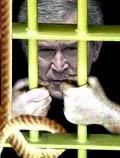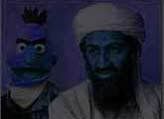| Find |
Thursday, 29 May 2008
Italy officer tells of spying on spies in cleric's kidnapping
Testifying in the trial of 26 Americans, the officer recalls how police tracked cellphone traffic to piece together prosecution of the disputed practice known as extraordinary rendition.
MILAN, ITALY -- One of Italy's top cops told a court Wednesday how, with meticulous detective work and substantial luck, he blew the lid off one of the Bush administration's most controversial counter-terrorism tactics.
Testifying in the trial of 26 Americans, most of them CIA operatives, who are accused of abducting a radical Egyptian cleric in Milan, the senior officer described tracking massive amounts of cellular telephone traffic to piece together Europe's only prosecution of the much-disputed practice known as extraordinary rendition.
The officer, Bruno Megale, recounted an astonishing tale of spies spying on spies. Police, armed with judicial warrants, used cellphone logs, wiretaps and intercepted e-mails to ensnare a CIA station chief, a U.S. Air Force colonel, five American diplomats and officers from Italy's military intelligence service accused of collaborating with the Americans.
The Americans are being tried in absentia; none are in Italy and none have acknowledged the proceedings in Milan's main courthouse. For their 20-plus court-appointed defense attorneys, one said, this is a trial of ghosts.
Megale, head of the Italian anti-terrorism police in Milan, said he and his agents first became aware of the disappearance of the cleric, known as Abu Omar, when his wife and friends reported him missing after he dropped out of sight Feb. 17, 2003. They wondered, did Italian authorities have him?
The Italians didn't. As is now known, Abu Omar was nabbed by an alleged CIA squad that threw him in a car, put him on a private jet at a U.S. military base in northern Italy and whisked him off to Egypt, where he has said he was tortured.
But Megale and the police were unaware of the CIA operation. And so they began to try to find out who had kidnapped Abu Omar.
"The sensation was that he had been kidnapped. . . . We spoke of possibilities, of the Americans, the Egyptian [security] service. . . , " Megale testified.
"At first there were no definitive clues."LA Times
Posted at
23:19
![]()
Post Title: Italy officer tells of spying on spies in cleric's kidnapping
![[Zionazis-1.jpg]](https://blogger.googleusercontent.com/img/b/R29vZ2xl/AVvXsEg_x8DOGucgHQmfJJujuK_oYJdxhEnskhQqt-Og7lSk52HeaDQYzW8NQWfdpHmPgj_FJN0jJ3tz1prR1jVZHdHky2HDQxxcs4LVxX0DtAt3fG0sfRr6MDx7Sz8cJNjl0k0RS9TbCjangQ/s1600/Zionazis-1.jpg)




